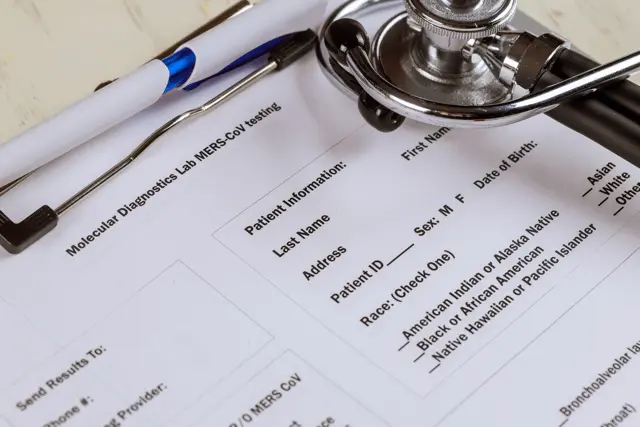Table of Contents
In recent years, artificial intelligence (AI) has emerged as a transformative force in healthcare, offering new possibilities for improving patient outcomes and operational efficiency. VLMS Healthcare, a pioneer in embracing cutting-edge technology, has begun to harness the power of AI to revolutionize patient care coordination. This article delves into the ways VLMS Healthcare is leveraging AI to enhance the delivery of medical services, resulting in more streamlined, patient-centered care.
Leveraging AI for Enhanced Patient Coordination
The integration of AI into patient care coordination is enabling VLMS Healthcare to take a giant leap forward in managing patient journeys. By employing sophisticated algorithms, the facility can predict patient flow, optimize appointment scheduling, and reduce waiting times. AI-driven systems are capable of analyzing vast amounts of data, including electronic health records (EHRs), to identify patterns that humans may overlook. As a result, healthcare providers can anticipate patient needs and address potential issues before they arise, ensuring a smoother care experience for both patients and providers.
AI also excels in facilitating communication across various healthcare teams, creating a synchronized environment where information is shared seamlessly. This interconnectedness allows for real-time updates about a patient’s status, which is vital for making informed decisions quickly. At VLMS Healthcare, AI-driven platforms are being used to integrate data from multiple sources, providing a comprehensive view of the patient’s history and current condition. This holistic approach enables a more coordinated response from different specialties, enhancing the quality of care.
Moreover, AI contributes to the personalization of patient care plans. At VLMS Healthcare, AI algorithms analyze individual patient data to suggest customized treatment regimens. This not only increases the effectiveness of interventions but also empowers patients by involving them in their own care planning. Through predictive analytics, VLMS can forecast potential health risks and take proactive measures, thereby improving patient satisfaction and outcomes.
AI Integration at VLMS: Transforming Care Delivery
VLMS Healthcare’s adoption of AI is redefining the paradigm of care delivery. The organization has implemented AI-driven decision support tools that assist clinicians in making evidence-based decisions. These tools help in diagnosing complex cases by providing second opinions, reducing the likelihood of misdiagnosis, and ensuring that patients receive the most appropriate care. Furthermore, machine learning algorithms are continually learning from new data, which means that the decision support tools are constantly improving and adapting to the latest medical research.
The benefits of AI at VLMS extend beyond clinical decision making. Administrative tasks that previously consumed a significant portion of healthcare professionals’ time are now automated, thanks to AI. This includes everything from managing patient records and processing insurance claims to predicting inventory needs for medical supplies. By automating these processes, VLMS Healthcare is able to redirect focus onto patient care, thus enhancing the overall efficiency of the healthcare delivery system.
Another significant aspect of AI integration at VLMS Healthcare is remote patient monitoring. Wearable devices and home-monitoring equipment integrated with AI are providing clinicians with continuous data, allowing them to track patient health metrics outside of the traditional healthcare setting. This not only provides a more comprehensive understanding of a patient’s health but also enables early intervention in case of any alarming signals. Telehealth, powered by AI, is also expanding the reach of VLMS, making healthcare more accessible to those in remote or underserved areas.
As VLMS Healthcare continues to integrate AI into its operations, the benefits are clear: improved care coordination, enhanced decision-making, and a more patient-centric approach that transcends traditional healthcare boundaries. The innovative use of AI at VLMS is not only streamlining processes but also paving the way for a future where healthcare is more accessible, personalized, and efficient. With AI’s ability to process and analyze vast amounts of data, VLMS Healthcare is setting a new standard in patient care and showcasing the transformative potential of AI in the medical field.
FAQ
How does VLMS Healthcare integrate AI into patient care coordination, and what specific aspects of the coordination process does it enhance?
VLMS Healthcare integrates AI into patient care coordination by automating tasks, predicting patient needs, and facilitating communication among healthcare providers. This enhances the efficiency of care coordination, improving patient outcomes and satisfaction.
Can you provide examples of how AI-driven innovations at VLMS Healthcare have improved the coordination of care among healthcare professionals and across different specialties?
Certainly, AI innovations at VLMS Healthcare have improved interdisciplinary collaboration, streamlined communication, and enabled predictive interventions, leading to more coordinated and patient-centered care across various healthcare specialties.
What role does predictive analytics play in patient care coordination at VLMS Healthcare, and how does it contribute to proactive and personalized healthcare delivery?
Predictive analytics in patient care coordination uses AI to analyze patient data, predict potential issues, and recommend personalized interventions. This proactive approach ensures that healthcare providers can address patient needs before they escalate, leading to better health outcomes.
In what ways does AI enhance the communication and information-sharing processes among healthcare teams, and how does it address challenges in fragmented healthcare systems?
AI improves communication by providing real-time updates, automating data sharing, and ensuring that relevant information is accessible to all team members. In fragmented healthcare systems, this fosters seamless collaboration and reduces the risk of information gaps.
Concerns about data security are common in healthcare. How does VLMS Healthcare ensure the privacy and security of patient information while utilizing AI for care coordination?
VLMS Healthcare prioritizes data security by implementing robust encryption, access controls, and compliance with healthcare data protection regulations. Rigorous security measures are in place to protect patient information, ensuring that AI-driven care coordination is conducted in a secure environment.


